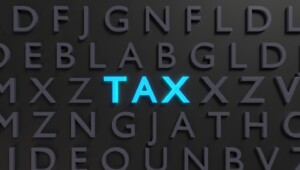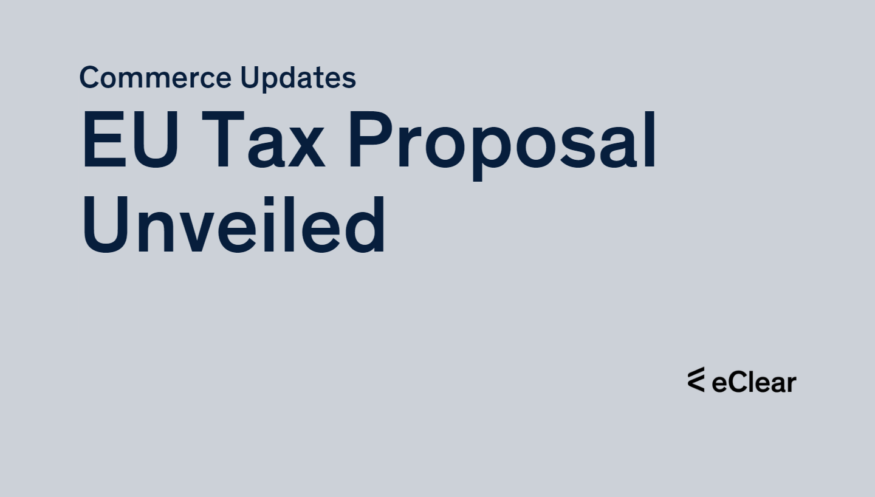The European Commission has unveiled an adjusted package for the next generation of its resources, which are the primary revenue sources for the EU budget. This proposal, announced on 20 June 2023, builds upon a package proposed in December 2021.
The adjusted package introduces a new statistical-based own resource tied to the corporate sector, designed to be temporary and replaced by a contribution from Business in Europe: Framework for Income Taxation (BEFIT) once agreed upon by all Member States. This resource will be calculated as 0.5% of the notional EU company profit base, an indicator determined by Eurostat using national accounts statistics.
The proposal is a part of the Commission’s recovery plan from the COVID-19 crisis, which includes the creation of a new recovery instrument, NextGenerationEU, worth €750 billion. The funding proposal for this instrument includes introducing EU taxes to supplement existing resources, such as a new corporate tax, a digital tax for large companies, a tax on nonrecycled plastic packaging waste, a carbon border adjustment mechanism, and an Emissions Trading System-based resource.
The adjusted package also proposes to increase the call rate for the Emissions Trading System-based own resource to 30%, up from the originally proposed 25%. The call rate for the Carbon Border Adjustment Mechanism remains at 75% of all revenues generated.
The proposal now moves to negotiations between Member States. Adopting the new own resource proposal requires unanimous agreement by all EU Member States in the Council, following a consultation of the European Parliament. Each EU country must also approve the deal at the national level, following their respective constitutional requirements.
The introduction of the new own resources is seen as necessary due to the EU’s annual expenditure not exceeding its revenue. The new statistical-based own resource could significantly increase national contributions to the EU budget, potentially triggering tax increases in many Member States. However, the timing and form of the proposal’s implementation remain uncertain due to the complexity of the adoption processes at the EU and national level.
EU’s Tax Action Plan: Significant Milestones Achieved

The European Commission’s Directorate-General for Taxation and Customs Union (DG TAXUD) has released its Annual Activity Report 2022. The report provides an overview of the department’s progress towards achieving the Commission’s general and specific objectives.
Key findings from the report include:
- The department has made significant progress in implementing the Tax Action Plan and the Customs Action Plan. The report highlights the successful completion of several initiatives under these plans.
- The department has also made strides in supporting other EU policy priorities through taxation. This includes efforts to design EU tax policy actions that contribute to a carbon-neutral continent by 2050.
- The report also notes progress in developing a more modern Customs Union to facilitate trade, safeguard revenues, and protect citizens and businesses. This includes promoting the EU’s customs agenda internationally.
Regarding crucial performance indicators, the report highlights the implementation indicators for the Tax Action Plan and the Customs Action Plan.
The report also provides critical conclusions on financial management and internal control. The DG TAXUD has assessed its internal control systems during the reporting year and concluded that they are effective and functioning as intended. The department has reasonable assurance that appropriate controls are in place, risks are appropriately monitored and mitigated, and necessary improvements and reinforcements are implemented.
The report concludes that the department is making significant progress towards its objectives and is effectively managing its internal controls and financial management. As Authorising Officer by Delegation, the Director-General has signed the Declaration of Assurance, indicating confidence in the department’s operations and controls.
EU customs reform: AEO becomes ‘Trust and Check Trader’

The European Court of Auditors published a special report on Authorised Economic Operator (AEO) on 5 May 2023. The report, titled “Solid customs programme with untapped potential and inconsistent implementation”, examines the effectiveness of the AEO programme and its implementation by the Member States.
The report praises the AEO programme for facilitating legitimate trade and promoting supply chain security. However, several problems were also identified. These include inconsistent interpretation of legal terms, different administrative practices across Member States and inconsistencies in the monitoring and managing AEO authorisations.
Another issue is the lack of recognition of some Member States’ AEO status of third-country programmes, even though the EU has concluded recognition agreements with these countries.
Despite these challenges, the report indicates good cooperation between the Member States, the Commission and the Authorised Economic Operators. However, the Court recommends improvements in the management, regulatory framework and implementation of the AEO programme, including the benefits for Authorised Economic Operators.
The current drafts for the reform of the EU customs system are expected to take up many of the recommendations of the European Court of Auditors. The upcoming overhaul aims to take the AEO to a new level, including introducing a “Trust and Check Trader” status for the AEO, which will be linked to further simplifications.
It remains to be seen how these drafts will be incorporated into the final text of the regulation. Companies interested in acquiring this additional status should start looking into the requirements now to make the other administrative and procedural arrangements for later quick approval of the “Trust and Check Trader/AEO plus” status.
Digitisation of taxes: SAP S/4HANA as a solution

By the end of 2027, SAP is expected to discontinue support for its former ERP solution, ECC. Many companies are migrating to SAP S/4HANA, raising whether the brownfield or greenfield approach is the right way, recommends it-daily.net
Tax compliance can be compared to moving house: One could insist on transferring all old equipment and furniture to the new home (brownfield approach), or one could opt for new, more modern options (greenfield approach).
Since the introduction of ECC6 by SAP in 2005, the world has changed a lot, especially in taxation. Governments worldwide are driving the digital transformation of tax collection with initiatives such as the EU’s ViDA (“VAT in the Digital Age”), which aims to simplify and modernise VAT procedures.
Non-compliance with these new rules is not an option, as it can lead to audits, fines, and even criminal sanctions. Therefore, companies must modernise their tax compliance and develop a global strategy compatible with ECC and SAP S/4HANA.
In the new transaction-centric world, tax compliance is becoming an operational issue. Companies need to be able to submit error-free, 100% accurate transaction data to tax authorities in real-time to avoid delays in their supply chains and fulfilment processes.
The migration to SAP S/4HANA provides a unique opportunity to implement a modern, centralised approach to indirect tax. Companies should choose a single provider capable of meeting their tax and regulatory compliance requirements wherever they do business.
Tax Incentives for Recycling: Czech Republic’s New Proposal

According to an information note from the Czech delegation to the Council of the European Union, the Czech Republic has proposed a lower VAT rate for products with recycled content as a potential economic tool to promote the circular economy. The proposal is part of a broader discussion on tax measures that can be used to improve waste prevention and management.
The Czech Republic argues that a reduced VAT rate would stimulate recycling and the use of secondary raw materials, increasing demand for recycled products. This approach aligns with the recommendations in the Waste Framework Directive and the 2020 EU Circular Economy Action Plan.
The proposal comes as the EU aims to shift towards a circular economy driven by environmental protection, reducing dependence on primary materials and economic benefits. The transition to a circular economy is expected to create new jobs, increase competitiveness, stimulate innovation, and promote economic growth and resilience.
However, the proposal faces a potential hurdle as a reduced VAT rate can only be applied to goods and services listed in Annex III of Directive 2006/112/EC, which currently does not include any products with recycled content. The Czech Republic is inviting the European Commission and Member States to discuss the possibility of having certain products with recycled content at a lower VAT rate.
The Czech Republic has been actively working towards a circular economy, adopting the strategic document Circular Czechia 2040 and developing an action plan. The country believes that tax measures, such as a lower VAT rate for products with recycled content, can be a suitable economic tool to stimulate greater use of materials with recycled content.
Small Businesses Drive UK’s £35.8bn Tax Gap

The UK’s tax gap has surged by 5% to a staggering £35.8bn, with small businesses shouldering a significant 56% of this figure, according to a report by HMRC. Despite the introduction of Making Tax Digital (MTD) to curb errors in tax returns, instances of failure to take reasonable care and errors have seen an uptick. As the tax gap widens, experts predict heightened scrutiny from HMRC on small businesses and call for increased resources and guidance to help these businesses navigate the complex tax system.
Payment solutions: Adyen and Shopify enter into a partnership

Adyen, the global financial technology platform, and Shopify, the internet infrastructure provider for commerce, have announced a partnership. The aim is to strengthen the potential of e-commerce for businesses and reduce the complexity of payment transactions.
Adyen will support Shopify’s expansion into the enterprise segment and provide flexible payment solutions. Adyen’s Shopify Payment Partner, a platform payment app, is expected to be available later this year, giving merchants a more flexible payment experience.
The partnership will enable businesses to integrate Adyen into their Shopify platform as a payment service provider. This will reduce the burden on system providers and allow large companies to accept and process payments faster.
The Adyen and Shopify partnership provides retail businesses with a centralised system to manage their commerce and payments. Shopify sees Adyen as a preferred partner in enterprise payments, as the company has extensive experience and solutions that meet the needs of large merchants.
The partnership will add functionality to enable merchants to scale faster and increase operational efficiency.
EPPO Seizes €6M in Latvian VAT Fraud Probe

The European Public Prosecutor’s Office (EPPO) in Riga, Latvia, conducted 16 searches on 19 June 2023 to investigate a suspected €14 million VAT fraud. During the searches, assets totalling up to €6 million were seized.
The investigation focuses on a municipal company suspected of colluding with private companies to inflate prices and increase deductible expenses artificially. By boosting operating expenses, the company reduced its tax payments.
Evidence suggests that the suspects engaged in simulated transactions and artificially inflated prices before signing contracts with the companies under investigation. It was found that certain project implementation costs were not actually incurred, and expenditures were artificially inflated.
The searches took place in various locations in Latvia, including the suspects’ homes and the offices of the companies involved. The operation was conducted in cooperation with Latvia’s Corruption Prevention and Combating Bureau and the Latvian Tax and Customs Police Department.
To recover damages to the EU budget, authorities have seized ten properties valued at over €6 million. The investigation underscores the EPPO’s commitment to combating fraud and protecting the integrity of the EU’s financial resources.







